
Articles by LGBTI+

Human rights victory for intersex persons
Geneva, 4 April 2024 - The International Planned Parenthood Federation celebrates the historic adoption of the first ever United Nations resolution on the human rights of intersex persons! This landmark resolution advances efforts to combat the unique human rights violations that intersex persons face and the obligation of states to respect, protect and fulfill the human rights of all people, without discrimination of any kind. The resolution, Combating Discrimination, Violence, and Harmful Practices against Intersex Persons, was adopted by a vote of 24 in favour and 23 abstentions, with no votes against it. The resolution acknowledges that intersex people exist in all societies and face multiple and intersecting forms of discrimination in all areas of life. It specifically expresses grave concern about violence and harmful practices that intersex persons face, including children, including unnecessary or deferrable medical interventions made without full, free and informed consent. The resolution calls on states to combat violence, discrimination and harmful practices against intersex people, address the root causes such as stereotypes and stigma, and work to realize intersex people’s human right to health. This is a major advancement in the work of the Human Rights Council to ensure all people can exercise their human rights free from violence and discrimination. Critically, intersex people and organizations were involved in every step of this initiative, including through powerful interventions in negotiations. IPPF applauds Finland, Chile, South Africa and Australia for championing a resolution which centered the priorities, terminology and lived experiences of intersex persons themselves. IPPF is proud to have worked in solidarity with civil society partners and Member States through evidence-based information, outreach and strategy in order to achieve success in this ground-breaking to guarantee the human rights of intersex persons. Estelle Wagner, IPPF’s Senior International Advocacy Adviser in Geneva said: “The fact that not a single Member State voted against this resolution demonstrates the overwhelming global support for the human rights of intersex persons. This is a momentous achievement of the intersex community and we are so proud to stand in solidarity at this historic moment.” As part of its ongoing commitment to advancing LGBTQI+ rights, IPPF is committed to continuing to fight for intersex people’s human rights at every level, from the UN to the local, to guarantee their right to live free from violence and discrimination. For media enquiries, please contact [email protected] About the International Planned Parenthood Federation The International Planned Parenthood Federation (IPPF) is a global healthcare provider and a leading advocate of sexual and reproductive health and rights (SRHR) for all. We are a movement of 150 Member Associations and Collaborative Partners with a presence in over 146 countries. Building on a proud history of 70 years of achievement, we commit to lead a locally owned, globally connected civil society movement that provides and enables services and champions sexual and reproductive health and rights for all, especially the under-served. We advocate for a world where people are provided with the information they need to make informed decisions about their sexual health and bodies. We stand up and fight for sexual and reproductive rights, and against those who seek to deny people their human right to bodily autonomy and freedom. We deliver care that is rooted in rights, respect, and dignity - no matter what.
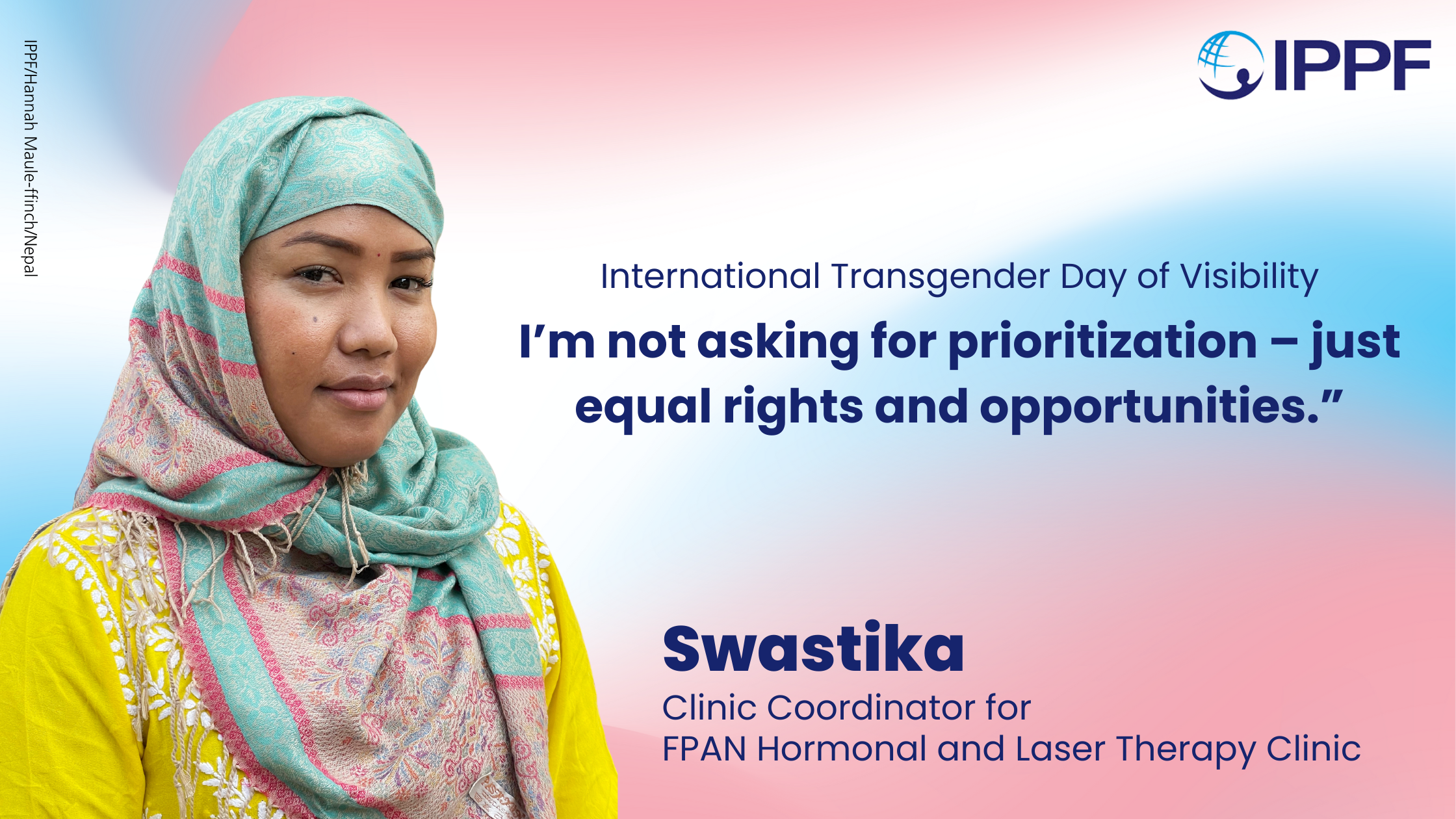
Breaking Barriers: Inside Nepal’s First LGBTQIA+ Hormonal and Laser Therapy Clinic
“In my mind, I only ‘came out’ once – from my mother’s womb,” says Swastika, a transgender activist and clinic coordinator of Nepal’s first Hormonal and Laser Therapy Clinic for LGBTQIA+ people. The clinic was established in 2022 in collaboration with IPPF’s member association, the Family Planning Association of Nepal (FPAN) and the Blue Diamond Society (BDS), Nepal’s pioneering LGBTQIA+ organization. Swastika’s journey as a transgender woman in Nepal has been a long one. She recalls leaving her family at the young age of 17 due to their initial rejection of her identity. “I know how much I have faced since my childhood; I have been bullied and sexually harassed, even after transitioning ... people in Nepal are slowly starting to accept our community, but there are still hurdles. For example, we are charged twice as much in rent than non-transgender people,” reflects Swastika. Nepal is often hailed as the ‘beacon of LGBTQIA+ rights in Asia’ and globally for its progressive laws towards gender and sexually diverse people. In a landmark 2007 Supreme Court decision (Blue Diamond Society and others v. Nepali Government), the court ordered the government to take three pivotal steps to strengthen the rights of LGBTQIA+ individuals: legally recognize a third gender category based on an individual’s self-identification; conduct a comprehensive audit of all laws to eliminate any discriminatory provisions against LGBTQIA+ people; and form a committee to study the legal recognition of same sex marriages. Following this ruling, the government implemented a directive allowing gender and sexually diverse individuals to specify their gender identity as ‘third gender’ or ‘other’ in official documents including citizenship, certificates, voter’s ID, passports and in the national census. However, despite these progressive steps, the reality on the ground is very different. Gender and sexually diverse people still face bureaucratic and legal hurdles when it comes to self-identification. Currently, there is no legal option for those seeking to change their gender marker from ‘male’ to ‘female’ or vice versa. Similarly, implementation of the policy to obtain legal documents marked ‘other’ is unclear and inconsistent. There have been instances reported where individuals seeking to change their marker to ‘other’ have been forced to undergo medical interventions as a form of ‘proof’ of their gender identity. These medical interventions are often obtrusive and traumatizing for the individual, with a team of doctors and professionals present as they undress and are physically examined, a procedure no cis-gendered person is obliged to undertake to ‘prove’ their sex. Although some transgender individuals have successfully obtained legal documents reflecting their self-identification as ‘male’ or ‘female’, medical evidence has still been required.

Uganda: denying NGO registration fails democratic principles
Geneva/London, 15 March 2024 - The Ugandan Court of Appeal’s decision to deny Sexual Minorities Uganda (SMUG) legal registration fails the democratic principles enshrined in the country’s Constitution and should be reversed, ILGA World and The International Planned Parenthood Federation (IPPF) said today. Despite having worked to protect the human rights of people of diverse sexual orientations, gender identities and expressions for more than twenty years, Sexual Minorities Uganda has repeatedly been denied legal recognition: first in 2012 and then in 2018, when the High Court upheld the initial decision by the Uganda Registration Services Bureau. Six years later, in March 2024, the Court of Appeal shut down SMUG’s hope to register and be recognised as an independent legal entity under the law. “For civil society organisations working on sexual, gender and bodily diversity issues, registration allows them to serve more effectively those parts of societies that States fail to protect,” said ILGA World and IPPF. “Without this opportunity, they cannot conduct their activities formally or receive funding for their work. Ultimately, this decision restricts freedom of association and further pushes those who are already targeted by discriminatory laws to the margins of society.” “The Constitution of Uganda,” continue ILGA World and IPPF, “claims that ‘The State shall be based on democratic principles which empower and encourage the active participation of all citizens at all levels in their own governance.’ Ultimately, the extremely disappointing decision to reject SMUG’s registration goes in the entirely opposite direction. We are in solidarity with the organisation and join them in calling out this missed opportunity to protect better the rights of some of the most vulnerable populations in Ugandan society.” In Uganda, registration is banned for those organisations with goals that allegedly are “in contravention of the laws”. In January 2023, a report by the NGO Bureau detailed how the agency investigated and acted upon several organisations for promoting the rights of LGBTI people and recommended authorities take stricter measures against NGOs that "promote LGBTIQ activities" — including stepping up the criminalisation of activism. A few months later, the Anti-Homosexuality Act was signed into law, further cracking down also on organisations found guilty of “promoting homosexuality”. These actions against LGBTI human rights NGOs are part of a larger crackdown on Ugandan civil society. In November 2019, the Ugandan government shut down more than 12,000 organisations. Such actions have since continued, with as many as 54 organisations suspended in a single day in August 2021. “Across the world, State and non-state actors are mobilising voter bases by attacking our identities and freedoms: we see the same tactics at play here, too,” ILGA World and IPPF conclude. “At this critical time, politicians need to focus on the things that matter – a stable economy and vibrant communities — rather than attacking those who work to support vulnerable parts of societies. LGBTI people and cisgender heterosexual women and girls are marginalised and excluded by policies, legislation and narratives that strip away reproductive rights and criminalise sexuality and gender. But our communities stand united to defend and secure democratic and economic rights for all.” Notes to editors: ILGA World is a global federation of more than 2,000 organisations from 170 countries and territories, advocating for the human rights of people of diverse sexual orientations, gender identities and expressions, and sex characteristics worldwide. https://ilga.org The International Planned Parenthood Federation (IPPF) is a global healthcare provider and a leading advocate of sexual and reproductive health and rights for all. Led by a courageous and determined group of women, IPPF was founded in 1952, and today, it is a movement of 150 member associations and collaborative partners with a presence in over 146 countries. https://www.ippf.org/ Contacts for media enquiries: ILGA World: Daniele Paletta, communications manager, [email protected] IPPF: Alice Ackermann, communications adviser, [email protected]
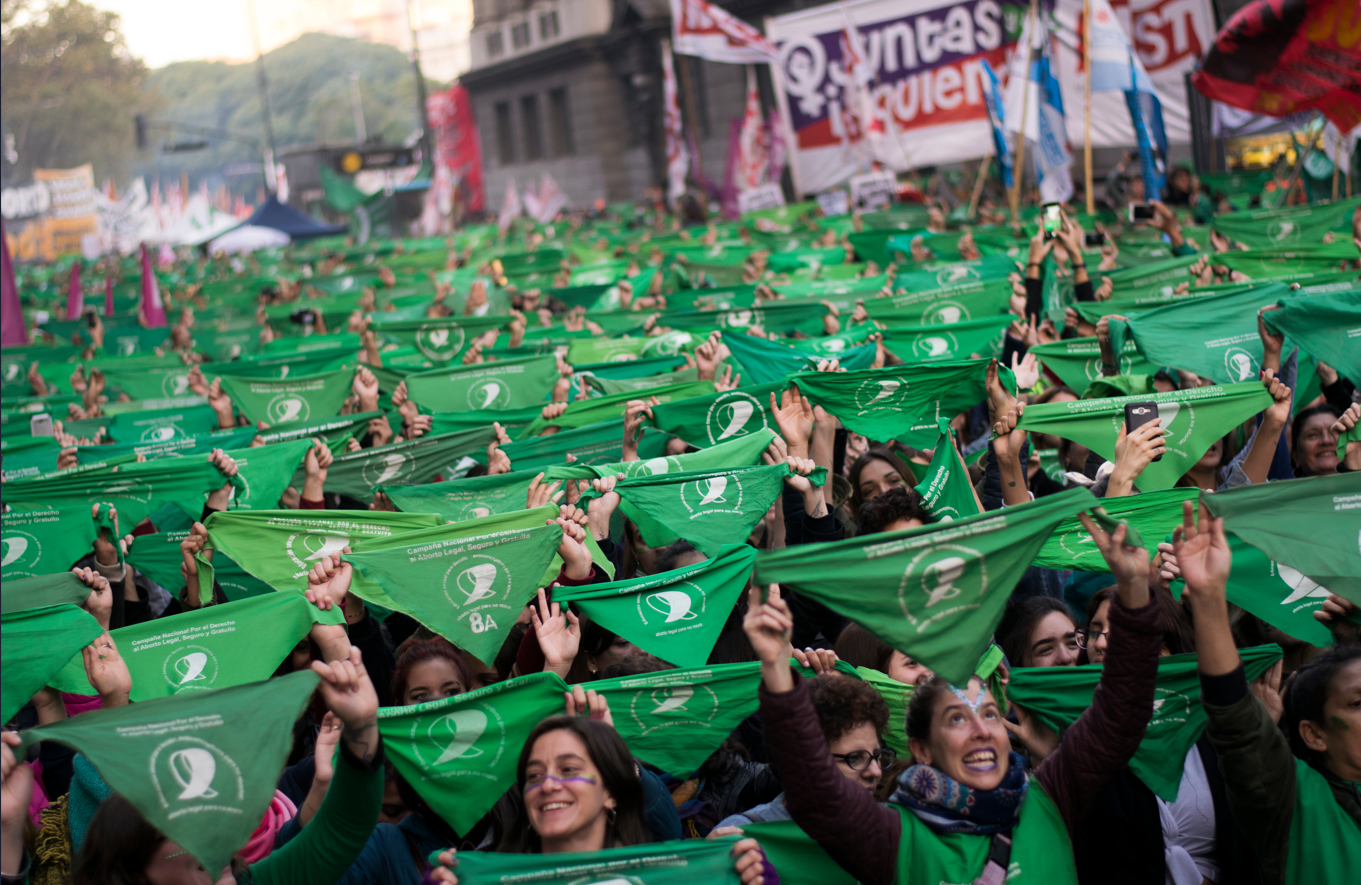
Argentina’s new President could roll back decades of progress in reproductive rights: We won’t cower in silence
The recent inauguration of the ultra-right-wing Argentinian President Javier Milei is a stark reminder of the fragility of our rights to our own bodies. Within a week of taking office, the self-described libertarian, who is openly anti-abortion and sexist, slashed the number of government ministries in half and delivered on his promise to eliminate the Ministry of Women, Gender and Diversity in the name of austerity. Although Milei's definitive plan for the newly formed and arbitrarily named ‘Ministry of Human Capital’ is not yet known, his famous phrase "there is no money" is a clear signal that sexual and reproductive health, rights and justice will not be on the agenda. Milei has said so himself: he has vowed to hold a plebiscite on whether to repeal the country’s 2020 landmark legislation of abortion, has attacked the 2006 law which recognizes’ students’ right to comprehensive sexuality education, routinely portrays LGBTIQ+ people as a menace to Argentinian society and denies the existence of the gender gap. But the need for a robust and well-funded public health service in Argentina, one that provides integrated sexual and reproductive healthcare services, is of vital public interest.
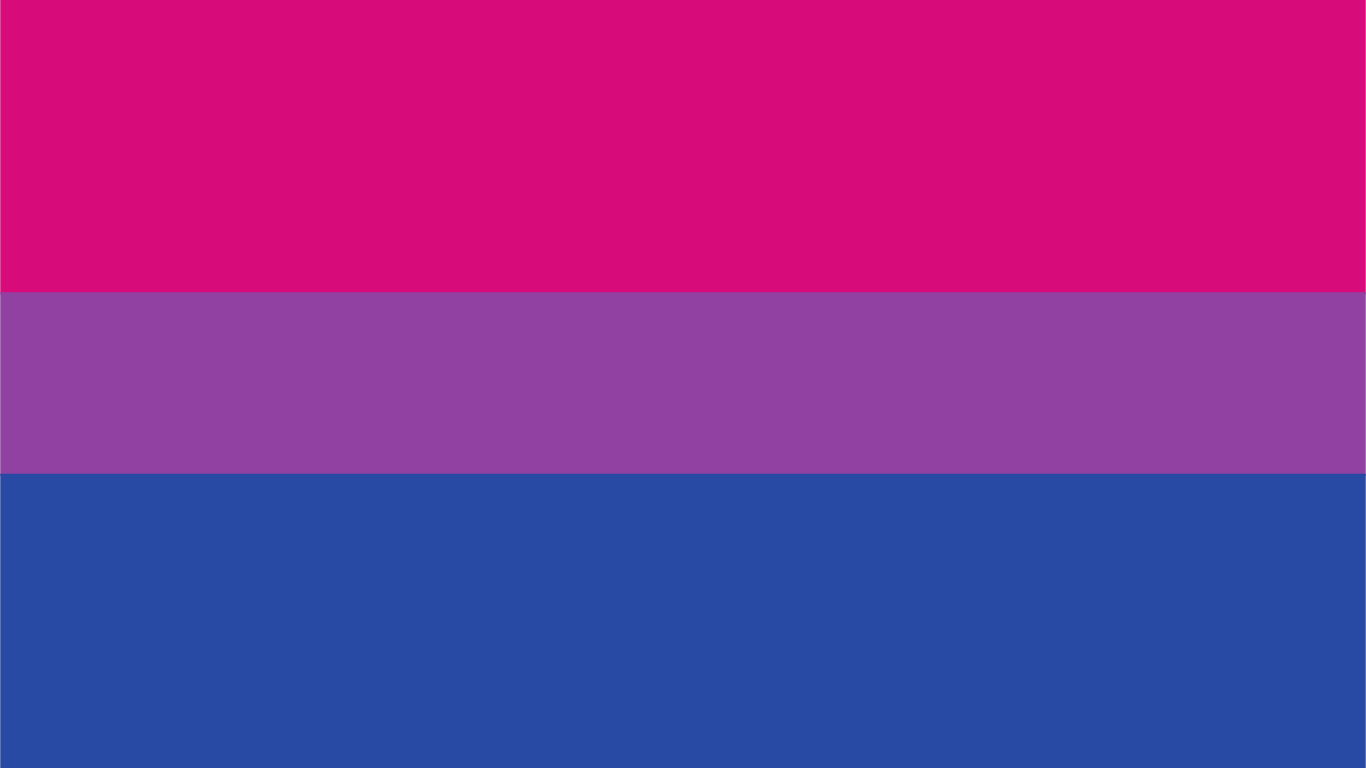
What does it really mean to be bisexual today?
Bisexuality is defined as the attraction to more than one gender. A bisexual person may feel equally attracted to multiple genders or they may feel more attracted to one gender. These feelings may change over time, and that is completely ok. Being bisexual can be a confusing and isolating experience, as bisexual people can often experience stigma, exclusion and discrimination from heterosexuals and even from people within the LGBTQ+ community. This is called Biphobia, and it refers to the discrimination against those who identify with the bisexual community. To celebrate Bisexuality Visibility Day, here are some important reminders about what it really means to be bisexual today: You don't have to tell anyone about your sexual history to prove you're bisexual. You don't even have to have sexual experience with different genders to be bisexual. You just are. The “bi-” in bisexual isn’t what you think Bisexuality is not just about being attracted to only two genders - male and female. It can mean you are attracted to more than one gender, including other genders like non-binary, trans and gender fluid. Bisexuality is not about one or the other, or both. Lots of bisexual people have a preference for one gender. Others have preferences for more than one gender. It’s all normal. Your bisexuality is valid no matter how you experience it. You aren't defined by your partner's gender. Your sexual identity is not based on who you're dating. It's about who you're attracted to - romantically, sexually, physically, emotionally or otherwise. You can feel different types of attraction to different genders. This can include sexual, physical and/or romantic attraction. Don't be afraid to explore your feelings by talking to friends, family or trusted partners. Even if you’re not sure what you're feeling, that's okay too. Being bisexual does not mean that a person desires more than one sexual partner at a time. One example of biphobia is when bisexuals are labeled as being ‘promiscuous’ because of their attraction to more than one gender. But no matter your sexual orientation, it has absolutely nothing to do with how many sexual partners you have, or how often you have sex. You are still bisexual even if you don’t feel bisexual or queer enough to be part of the LGBTQ+ community. That’s actually a very bisexual thing to feel (but it shouldn’t be!) Bisexuals are often seen as not ‘queer enough’ or seen as ‘half straight’ or ‘half gay’. This is not true, and is another example of biphobia. Bisexual people are valid and deserve to be fully embraced by the LGBTQ+ community. Bisexual people often come out later in life or not at all Bisexual people are significantly less likely to be out with friends and family about their orientation - according to Stonewall, only 36% of bisexuals come out to their friends, compared to 74% of gay or lesbian people. Every LGBTQ+ person deserves the right to come out when, how and who they want to. To be a good ally you should familiarize yourself with the different sexual idenity terminology and the different challenges each LGBTQ+ person may face. Bisexuality and Pansexuality can be used interchangeably Some people consider the term “bisexual” to be non-inclusive and prefer the term “pansexual.” Pansexuality is described as attraction to all genders, therefore including trans, non-binary and gender fluid people. Similarly, bisexual people are also attracted to other genders outside the binary of male and female. Gender and sexual orientations evolve and so should their definitions. Remember: the B in LGBTQ+ is just as valid and beautiful as every other sexual orientation. Further Reading: Bi Visibility Hub | Stonewall Resource Guide to Coming Out as Bisexual - Human Rights Campaign (hrc.org)

Trans & Proud: Being Transgender in the Cook Islands
It’s a scene like many others around the world: a loving family pour over childhood photos, giggling and reminiscing about the memories. This particular scene takes place amongst the swaying palm trees and soft breeze rolling over the island of Rarotonga in the Cook Islands, and the child they are cooing over – then named Nathanial – is now a beautiful transgender woman, Natalia. Born in New Zealand to Cook Islanders parents, 36-year-old Natalia (Talia) Lajpold, says she has always known she was female. Talia grew up in Australia and began her transitioning process at the age of 15. In the last year of her schooling, Talia decided to wear the girl’s uniform to school but was met with disapproval from the school authorities. “A lot of people think [being transgender] is a choice but if I had a choice, I would choose for things to be normal, the way I was born. Because it’s really hard. High school was hard,” Talia recalls.

IPPF Africa Region urges Ugandan government not to enact harmful anti – LGBTIQ+ law
Nairobi, Kenya: On 21st March 2023 the Ugandan parliament approved a law which, if enacted, would criminalise people for identifying as a member of the LGBTIQ+ community. The proposed law has been through two readings in parliament and is awaiting a third before it is put forward to the President for Assent. If passed, it will be a gross violation of and undermine the human rights and safety of people identifying as LGBTIQ+ in Uganda. IPPF Africa Region is strongly concerned about the numerous ways in which the passing of this law will violate international human rights including the right to life and dignity, freedom of expression and association, protection from discrimination, and will compromise the full and complete attainment of sexual and reproductive health and rights. Additionally, IPPF is extremely concerned about the dangerous message the law sends. In addition to criminalising consent, it encourages hatred, may escalate violence and gender-based violence targeting persons from LGBTIQ+ communities, popular justice, hinders the right to a fair trial, makes it easier to target minority groups, and harder for them to access justice and redress for hate crimes. At a time when countries around the world and in Africa are decriminalising same sex relationships, this law, if passed, will be a serious step backwards for Uganda. Marie-Evelyne Petrus-Barry, IPPF’s Africa Regional Director, said: "IPPF works to ensure the sexual and reproductive health and rights of all people regardless of their sexual orientation, gender identity and/or expression, and sex characteristics (SOGIESC) – including lesbian, gay, bisexual, trans, and intersex people – and ensure they have access to the full set of human rights enshrined in international human rights laws” “IPPF is willing to work with the Ugandan Government and other stakeholders to ensure that all Ugandan people can access their sexual and reproductive rights without fear, discrimination, or restraint", added Petrus-Barry. IPPF strongly urges the President of Uganda to not sign off on this discriminatory law, uphold and safeguard the Universal Declaration and African Charter on Human Rights, and treat all Ugandans equally. IPPF stands with the LGBTIQ+ community in Uganda and globally at this difficult time. For further information or to request an interview, please contact: Mahmoud Garga, Lead Specialist - Strategic Communication, Media Relations and Digital Campaigning, IPPF Africa Regional Office (IPPFARO) – email: [email protected] / Tel: +254 704 626 920 ABOUT IPPF AFRICA REGION (IPPFAR) The International Planned Parenthood Federation Africa Region (IPPFAR) is one of the leading sexual and reproductive health (SRH) service delivery organization in Africa, and a leading sexual and reproductive health and rights (SRHR) advocacy voice in the region. Headquartered in Nairobi, Kenya, the overarching goal of IPPFAR is to increase access to SRHR services to the most vulnerable youth, men and women in sub-Saharan Africa. Supported by thousands of volunteers, IPPFAR tackles the continent’s growing SRHR challenges through a network of Member Associations (MAs) in 40 countries. We do this by developing our MAs into efficient entities with the capacity to deliver and sustain high quality, youth focused and gender sensitive services. We work with Governments, the African Union, Regional Economic Commissions, the Pan-African Parliament, United Nations bodies among others to expand political and financial commitments to sexual and reproductive health and rights in Africa. Learn more about us on our website. Follow us on Facebook, Twitter, Instagram and You Tube.
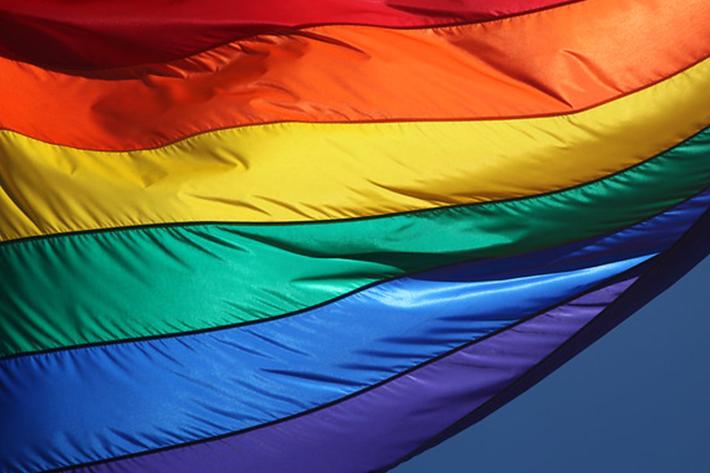
Ugandan LGBTQI+ organization banned by government
On 3 August 2022, the Ugandan National Bureau for Non-Governmental Organizations unfairly halted the activities of Sexual Minorities Uganda (SMUG) – a prominent lesbian, gay, bisexual, transgender, and queer (LGBTQI+) rights organization – for failing to meet the bureau's registration requirements. SMUG has provided sexuality education and advocated for LGBTQI+ healthcare since 2004 and is well-known for providing services and guidance to the LGBTQI+ community in Uganda. The organization also contributes to Uganda's health goals, including the country's HIV/AIDS strategy, which includes the provision of healthcare to vulnerable and marginalized populations. Although SMUG applied to the Uganda Registration Services Bureau (URSB) in 2012, the URSB declined the organization's request on the grounds that SMUG was "operating illegally", a position the organization petitioned with no positive response. In a clear case of harassment and restrictions against Ugandan rights groups working on LGBTQI+ rights, the URSB further asserted that registering SMUG's name would be difficult, calling it "undesirable and un-registrable". In response to the ban the Africa Regional Director for the International Planned Parenthood Federation (IPPF) urged the Ugandan government to review its decision to suspend SMUG and to work towards accommodating the organization's mandate of advancing the rights of the LGBTQI+ community in Uganda. Marie-Evelynne-Petrus-Barry said: "As a global human rights organization and the world's largest sexual and reproductive healthcare provider, the International Planned Parenthood Federation upholds the rights of all people, regardless of their sexual orientation. "The Ugandan government's ban of SMUG has created huge anxiety among health service providers, human rights defenders, and members of the LGBTQI+ community, who risk their lives daily so that LGBTQI+ people can access healthcare and information just as any other person would. "We ask the Ugandan government to urgently reconsider its decision to suspend SMUG and to put an end to laws and policies that criminalize, target and endanger members of the LGBTQI+ community and the organizations that advocate for their rights." Petrus-Barry added: "IPPF works to ensure that people with diverse sexual orientation, gender identity and/or expression, and sex characteristics (SOGIESC) – including lesbian, gay, bisexual, trans, and intersex people have access to the full set of human rights enshrined in international human rights laws. IPPF is willing to work with the Ugandan government and other stakeholders to ensure that all Ugandan people can access these rights without restraint." For media enquiries, please contact Mahmoud Garga, Lead Specialist – Strategic Communication, Media Relations and Digital Campaigning, IPPF Africa Regional Office (IPPFARO) on [email protected] or +254 704 626 920 ABOUT IPPF AFRICA REGION (IPPFAR) The International Planned Parenthood Federation Africa Region (IPPFAR) is one of the leading sexual and reproductive health (SRH) service delivery organizations in Africa and a leading sexual and reproductive health and rights (SRHR) advocacy voice in the region. Headquartered in Nairobi, Kenya, the overarching goal of IPPFAR is to increase access to SRHR services to the most vulnerable youth, men and women, in sub-Saharan Africa. Supported by thousands of volunteers, IPPFAR tackles the continent's growing SRHR challenges through a network of Member Associations (MAs) in 40 countries. We do this by developing our MAs into efficient entities with the capacity to deliver and sustain high-quality, youth-focused and gender-sensitive services. We work with Governments, the African Union, Regional Economic Commissions, the Pan-African Parliament, and United Nations bodies, among others, to expand political and financial commitments to sexual and reproductive health and rights in Africa. Learn more about the IPPF Africa Region on their website or follow them on Facebook, Twitter, Instagram and YouTube.
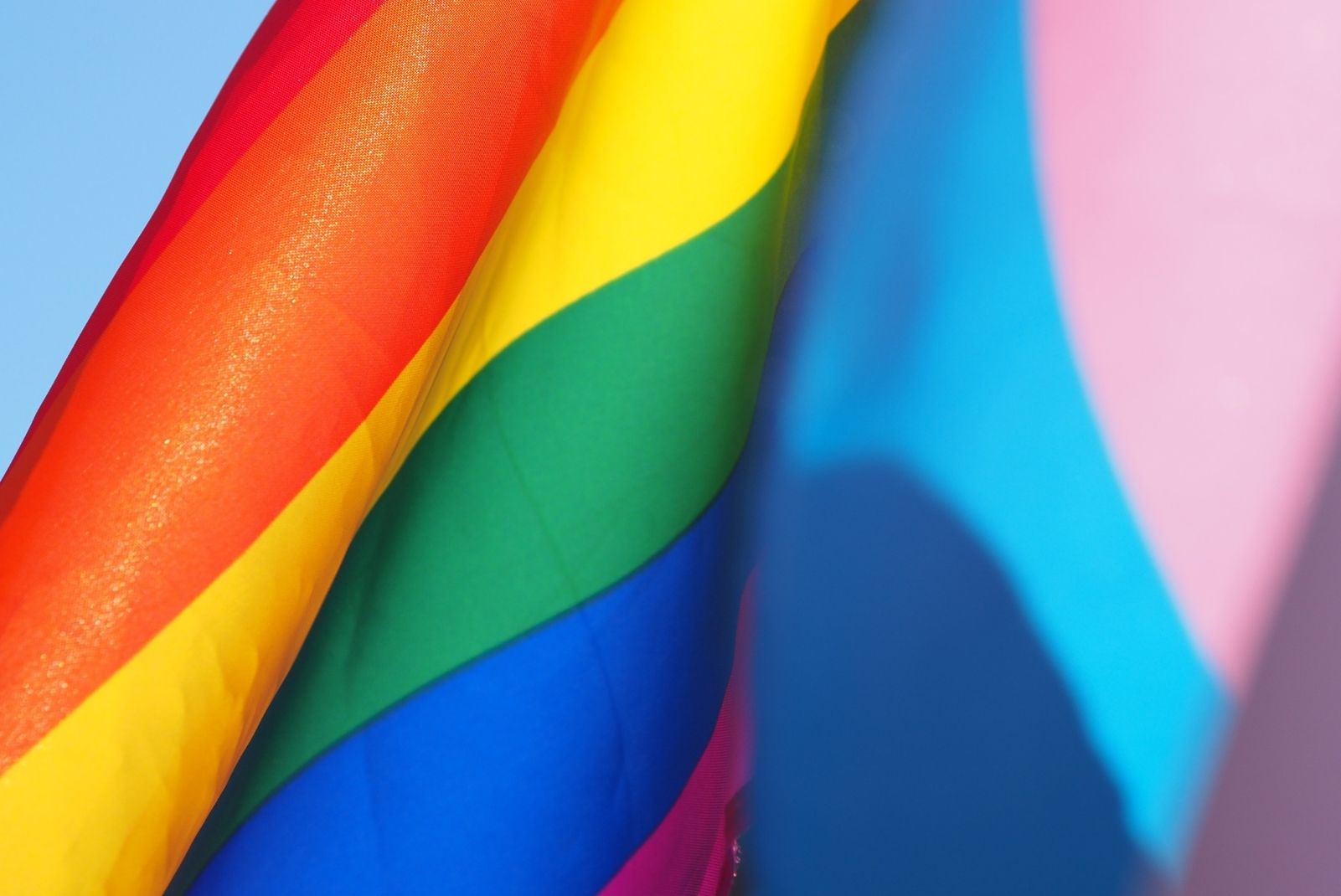
IPPF celebrates UNHRC decision on protection against violence and discrimination based on sexual orientation and gender identity
IPPF celebrates the decision of the UN Human Rights Council to renew the Mandate of the Independent Expert on protection against violence and discrimination based on sexual orientation and gender identity on July 7th, at its 50th session. IPPF was actively involved in advocating for the renewal of this important mandate, working closely with a large coalition of civil society organizations, activists and Member States to encourage support for the renewal. It is fitting that this renewal comes on the heels of Pride Month in June. First established in 2016, this is the second time the mandate has been renewed, solidifying the commitment of the international community against discrimination and violence based on SOGI and unequivocal support to LGBTQI+ people. In addition to renewing the mandate of the Independent Expert to continue country visits and thematic reports, for the first time, this resolution expresses strong concern at existing laws, policies and practices criminalizing consensual same-sex conducts and relations and calls upon Member States to amend or repeal laws and policies that discriminate against persons on the basis of their sexual orientation and gender identity. IPPF works actively to advocate for all people’s human right to live free from violence and discrimination on any grounds, including real or perceived sexual orientation and gender identity. We look forward to continuing to support the work of the Independent Expert over the next three years. Main image by Cecilie Johnsen on Unsplash
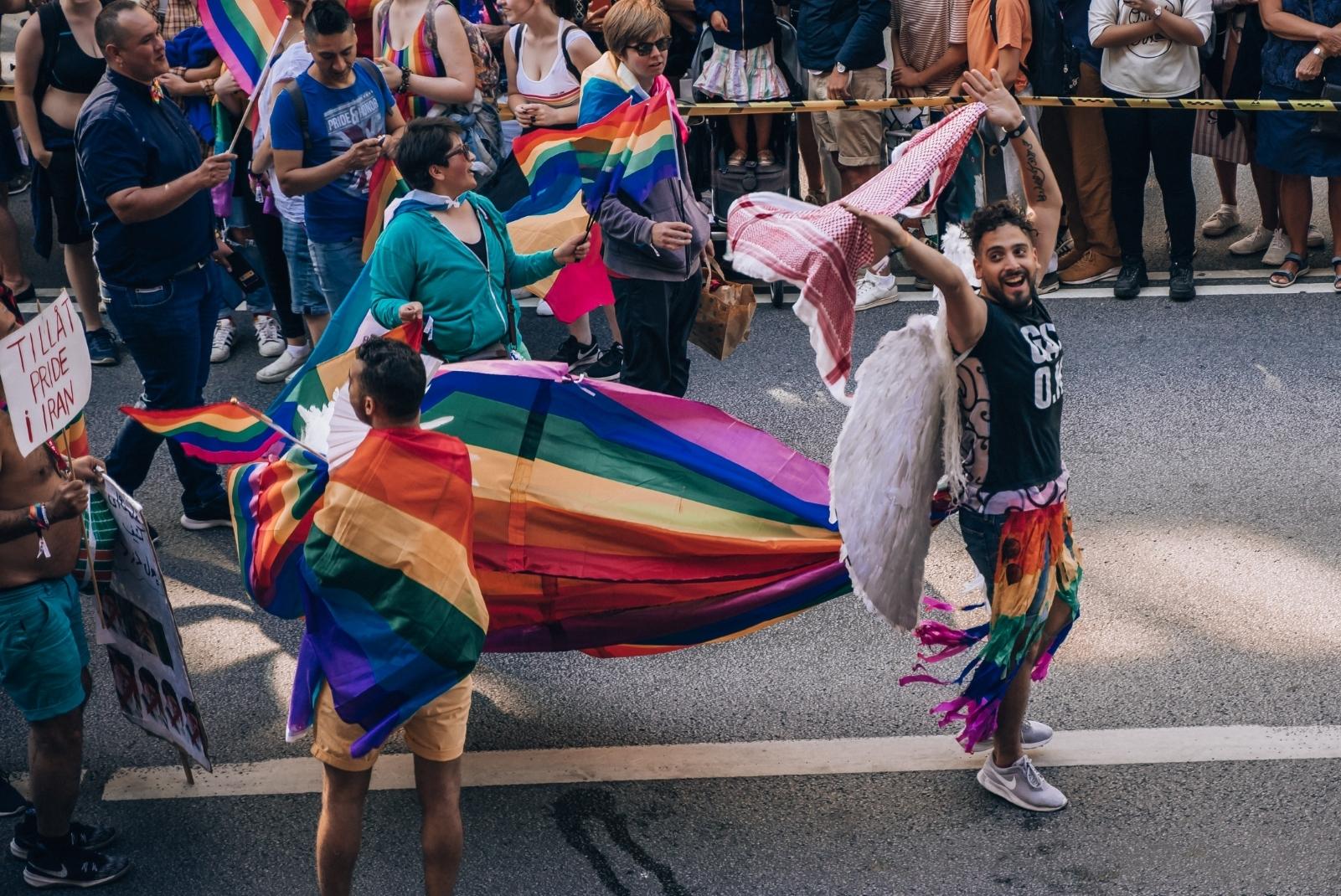
Pride 2022: What’s changed since last year?
In the year since the last Pride Month, there have been substantial developments for LGBTQ+ communities all around the world. From the decriminalization of same-sex relationships in Botswana to the banning of abusive “conversion therapy” practices in Greece, and much more, see what’s changed since the last Pride in June 2021: Switzerland There was some great news out of Switzerland in September 2021, when the country took to the ballots to vote decisively on a referendum to make same-sex marriage legal, and to give same-sex couples the right to adopt children. Switzerland had previously allowed same-sex couples to register partnerships since 2007, but some rights were still restricted. Nearly two-thirds of voters backed the new measures, making Switzerland the 30th country in the world to adopt same-sex marriage. South Africa South Africa’s local elections in November 2021 saw what is likely to be Africa’s first openly gay mayor elected to office. Chris Pappas, who is just 30-years-old, was elected mayor of uMngeni municipality in KwaZulu Natal, a traditionally conservative province – making the victory even more stunning. He made no secret of his sexual orientation, appearing alongside his fiancé JP Prinsloo during his winning campaign. Canada In December, Canadian lawmakers passed a motion banning the harmful practice of so-called “conversion therapy”. Repeated attempts to pass legislation banning the practice had been made in recent years, though none had succeeded until this point. Following the vote, Canadian MP Randy Boissonnault, who is gay, said: “I dream of the day when LGBTQ2 issues are no longer political footballs. And we are one day closer to that future.” Botswana December 2021 saw a huge victory for LGBTQ+ equality in Botswana as the country’s appeals court upheld a ruling that decriminalized same-sex relationships. Una Ngwenya, Executive Director of BOFWA (an IPPF Member Association), expressed her joy at the decision, stating that: “the ruling will go a long way in addressing issues of stigma and discrimination against members of the same-sex community in Botswana. We believe that this decision will inspire members of this community to freely seek sexual and reproductive health services and go on with their lives like everyone else.” Chile Also in December 2021, Chile's congress approved a long-awaited bill to legalize same-sex marriage, joining just a handful of countries in Latin America with similar laws. The only other countries in the region which permit same-sex couples to marry are Costa Rica, Ecuador, Colombia, Brazil, Uruguay, Argentina, and 14 of Mexico's 32 states. Chile legalized same-sex civil unions in 2015, and has been eagerly awaiting the legalization of gay marriage since a bill was sent to Congress in 2017. France 2022 started on a positive note when France's parliament voted in January to ban so-called "conversion therapy" – a discredited practice which has no place in any society, anywhere. The measure was passed unanimously by the National Assembly, with 142 votes to 0. French President Emmanuel Macron praised the move, stating that "being oneself is not a crime". Anyone convicted under the new law could face fines of up to €30,000 and two years in jail. New Zealand In the same month, New Zealand also banned conversion practices, in a nearly unanimous vote among lawmakers. The legislation makes it an offence to perform conversion practices on anyone under 18, or with impaired decision-making capacity. Anyone doing so faces up to three years in prison. It is also an offence to perform conversion practices that cause “serious harm”, irrespective of age, carrying a sentence of up to five years’ imprisonment. Kuwait There was a major win for trans rights in February 2022 when Kuwait's Constitutional Court overturned a law criminalizing the so-called "imitation of the opposite sex." In its decision, the court acknowledged the law’s ambiguity, noting it does not specify what exactly constitutes an “imitation of the opposite sex,” and the law’s lack of objectivity in application. This cruel law must now be repealed entirely and anyone arrested or held under it released immediately. Guatemala In March 2022, Guatemala's Congress passed a law which prohibited same-sex marriage and banned the teaching of comprehensive sexuality education and sexual diversity in schools. Shockingly, it also tripled prison sentences for women seeking abortion care. Following widespread global condemnation, Guatemala dropped the legislation days later but activists remain on alert to ensure these damaging policies do not re-emerge at another time. Greece In May 2022, Greece banned "LGBTQ conversion therapy” for minors. Greek Health Minister Thanos Plevris told parliament: “There were some false treatments that stated that when a minor has chosen a different sexual orientation, his parents could supposedly proceed with 'treatments' for this child to 'return to normality'. Obviously these treatments not only are not a therapy but they are not supported scientifically.” Japan And finally, also just last month Japan’s capital city Tokyo announced it will recognize same-sex partnerships as of this November. However, couples will still not be granted the same rights as married couples, and so IPPF urges Japan to implement fair laws for all. In the Asia region, Taiwan is currently the only place with marriage equality, having taken the unprecedented step of legalizing same-sex unions in 2019. To keep up with more global changes, follow ILGA World – the international lesbian, gay, bisexual, trans and intersex association. Main image by Lindsey LaMont on Unsplash You might be interested in this... Sex og Politikk (our Norwegian Member Association which hosts the IPPF Center for Sexual and Gender Diversity) is organizing a series of public talks under the title “How far are we going to allow the state in the bedroom?” With both state and civil society actors from Norway and abroad, these events are in observation of 50 years since the decriminalization of homosexuality in the country. The first event takes place on 20 June and is titled “There are no gays in our village: A conversation on public health opening doors to decriminalization, non-discrimination and full LGBTQI+ equality”. The second takes place on 22 June and is titled “What kind of gender markers do we need in documents?” Both events are expected to be livestreamed – check the links to get involved.
Pagination
- Previous page
- Page 2
- Next page







